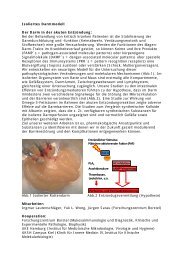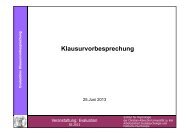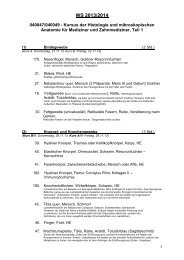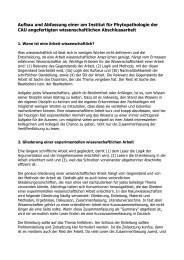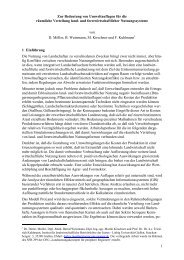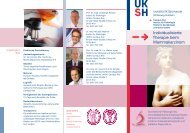European Resuscitation Council Guidelines for Resuscitation 2010 ...
European Resuscitation Council Guidelines for Resuscitation 2010 ...
European Resuscitation Council Guidelines for Resuscitation 2010 ...
You also want an ePaper? Increase the reach of your titles
YUMPU automatically turns print PDFs into web optimized ePapers that Google loves.
D. Biarent et al. / <strong>Resuscitation</strong> 81 (<strong>2010</strong>) 1364–1388 1379<br />
charge. One paediatric case series demonstrates the effectiveness of<br />
amiodarone <strong>for</strong> life-threatening ventricular arrhythmias. 287 There<strong>for</strong>e,<br />
IV amiodarone has a role in the treatment of defibrillation<br />
refractory or recurrent VF/pulseless VT in children.<br />
Extracorporeal life support<br />
Extracorporeal life support should be considered <strong>for</strong> children<br />
with cardiac arrest refractory to conventional CPR, if the arrest<br />
occurs in a highly supervised environment and available expertise<br />
and equipment to rapidly initiate extracorporeal life support<br />
(ECLS).<br />
Arrhythmias<br />
Unstable arrhythmias<br />
Check <strong>for</strong> signs of life and the central pulse of any child with an<br />
arrhythmia; if signs of life are absent, treat as <strong>for</strong> cardiopulmonary<br />
arrest. If the child has signs of life and a central pulse, evaluate<br />
the haemodynamic status. Whenever the haemodynamic status is<br />
compromised, the first steps are:<br />
1. Open the airway.<br />
2. Give oxygen and assist ventilation as necessary.<br />
3. Attach ECG monitor or defibrillator and assess the cardiac<br />
rhythm.<br />
4. Evaluate if the rhythm is slow or fast <strong>for</strong> the child’s age.<br />
5. Evaluate if the rhythm is regular or irregular.<br />
6. Measure QRS complex (narrow complexes: 0.08 s).<br />
7. The treatment options are dependent on the child’s haemodynamic<br />
stability.<br />
Bradycardia<br />
Bradycardia is caused commonly by hypoxia, acidosis and/or<br />
severe hypotension; it may progress to cardiopulmonary arrest.<br />
Give 100% oxygen, and positive pressure ventilation if required, to<br />
any child presenting with bradyarrhythmia and circulatory failure.<br />
If a poorly perfused child has a heart rate



